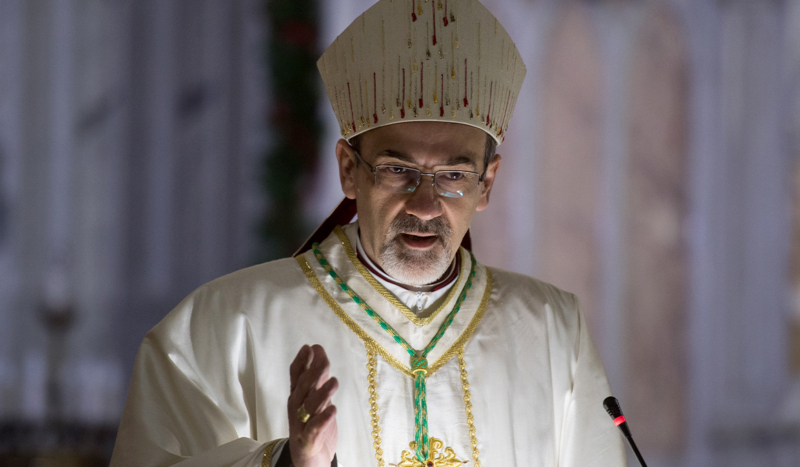
Cardinal Pizzaballa by Catholic Church England and Ireland / Flickr
In his homily for the Feast of Corpus Christi, Cardinal Pierbattista Pizzaballa of the Latin Patriarchate of Jerusalem reflected on the need for self-sacrifice, community, and hope in order to combat physical and spiritual hunger amid ongoing war and conflict.
Preaching June 19 on the Gospel of Luke’s account of the feeding of the 5,000 with five loaves and two fish, Cardinal Pizzaballa reflected that though the crowd was hungry, they remained with Jesus because they were hungrier for his presence in their lives. He pointed out that when Jesus realized their physical hunger, he told his disciples to feed the crowd themselves, which Cardinal Pizaballa noted is a “request that is humanly impossible to achieve.”
Cardinal Pizzaballa connected the Gospel to ongoing wars in the Middle East, acknowledging that the Holy Land is experiencing the reality of hunger in a way that was never expected.
“We are living in a time of real hunger. And with it comes a hunger for justice, for truth, for dignity,” he said, adding that the difficulties of life can easily come with the temptation to give up God’s will and abandon hope, just as the disciples might have felt.
“Jesus’ answer to the disciples, however, is clear and points to what should always characterize the life of a Christian,” he continued. “And so it is also the answer for us today, even for us in the Holy Land: ‘Give them some food yourselves’ (13).”
Cardinal Pizzaballa said that giving food to others means becoming “Eucharistic” by making a gift of self and allowing a person’s life to constantly give praise to God. He added that Jesus is calling the ecclesial community in the Holy Land to be Eucharistic in a time of war by practicing self-sacrifice, building up relationships and community, welcoming strangers, continuing in hope, and believing that everything can be transformed in Jesus. He also said that amid conflict and war, Christians should “have the courage to be inclusive, i.e. to welcome the other when everything points to the opposite.”
“We can’t do this on our own. We are not capable of so much,” he said. “Only Jesus can give us this strength and open us up to this freedom. And only in the Eucharist, in the encounter with the dead and risen Christ who gives himself to us, can we receive this ability.”

